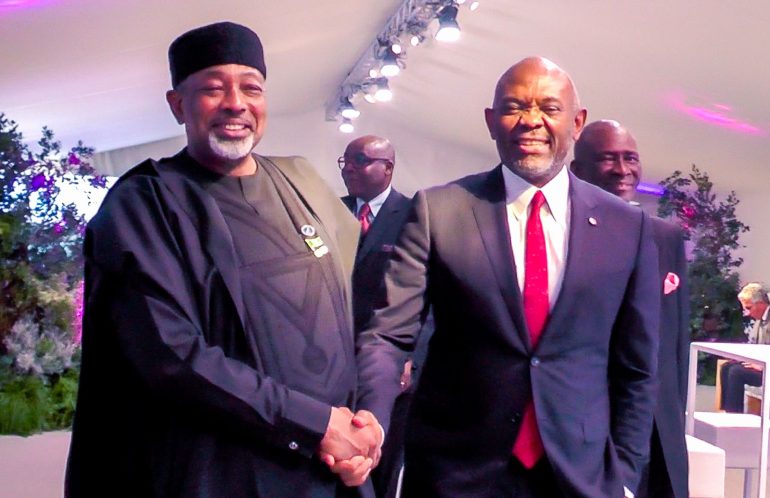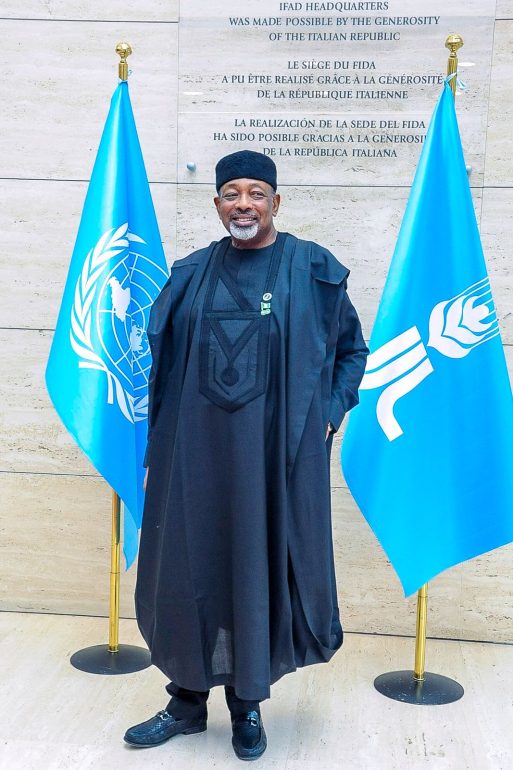Listeners:
Top listeners:
-
play_arrow
104.9FM Best rock music demo
-
play_arrow
Demo Radio Nr.1 For New Music And All The Hits!
-
play_arrow
Demo Radio Techno Top Music Radio
-
 play_arrow
play_arrow
Police Commissioner Launches Weapon and Riot Control Training for FCT Officers Democracy Radio
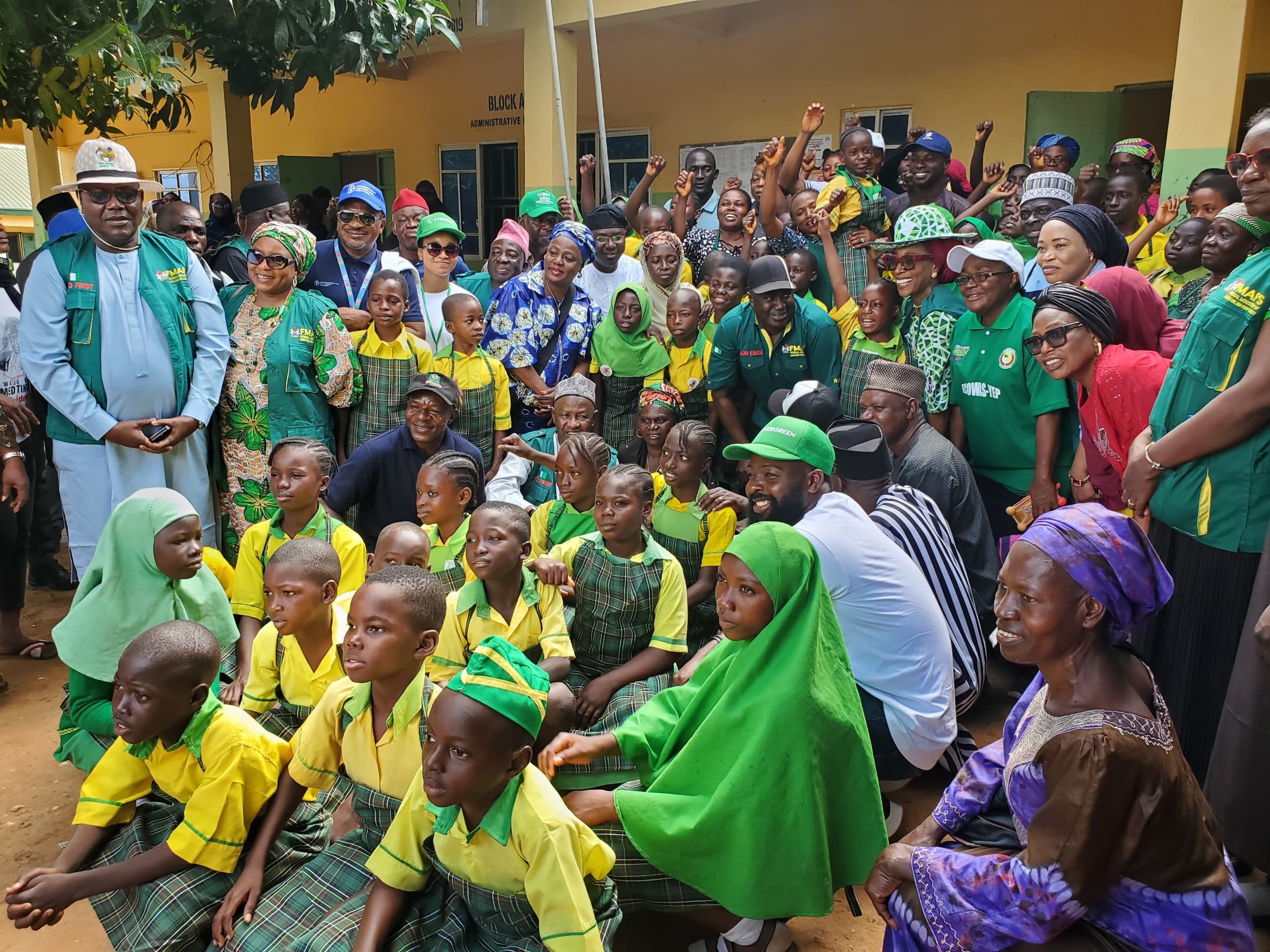
By Sofiat Adenekan-Abdul
As Nigeria joins the global community to mark World Food Day 2025, government leaders and agricultural stakeholders have renewed calls for greater investment in food production.
They also called for youth participation in agriculture, and practical action to address climate and infrastructure challenges threatening food security.
Held at Pasali UBE Primary School, Kuje Area Council, this year’s celebration echoed the global theme, “Hand in Hand for Better Food and a Better Future,” highlighting the need for collaboration across sectors to build a resilient as well as sustainable food system.
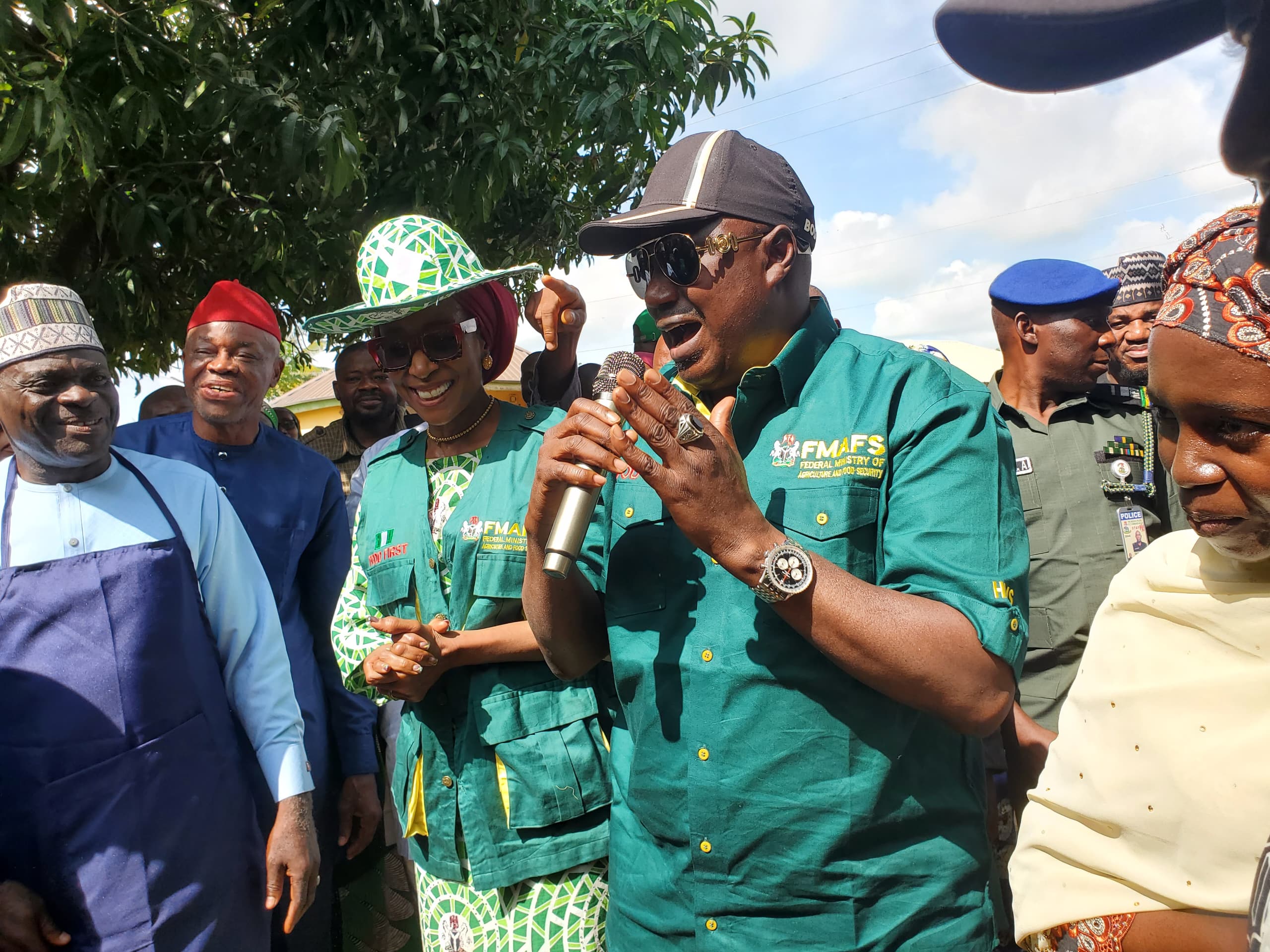
Senator Aliyu Abdullahi, Minister of State for Agriculture and Food Security, reaffirmed the government’s commitment to empowering young people through agriculture.
He praised initiatives under the First Lady’s Renewed Hope Programme, such as the Young Farmers Club and Every Home a Garden, describing them as critical to building food self-sufficiency and awareness from an early age.
> “There’s no better place to showcase this than among our future leaders,” he said. “Even in urban schools, farming can be a source of income.”
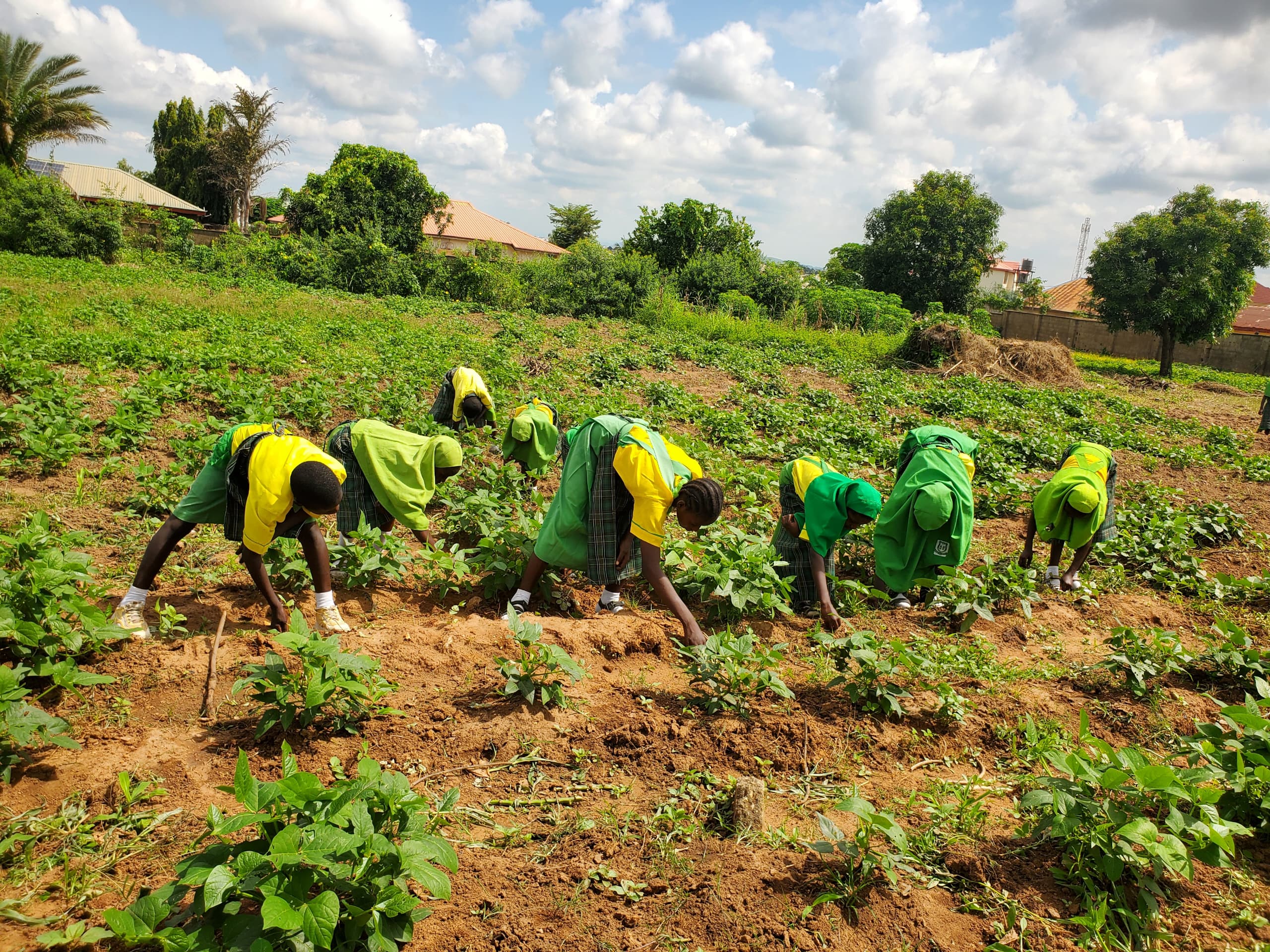
The Minister also introduced the Renewed Hope Agricultural Technology Transfer Programme (RATAP), a community-based initiative aimed at driving innovation, technology adoption, and training for smallholder farmers.
He urged schools to restructure available land for crop and livestock farming and ensure access to water through boreholes, noting that agriculture education must combine both theory and practice.
In his remarks, Honourable Idi Maiha, Minister for Livestock, emphasised the importance of integrating animal husbandry into school farming programmes to give children a practical understanding of food sources.
> “Children shouldn’t think food comes from the supermarket. Someone has to work in the field,” he said.
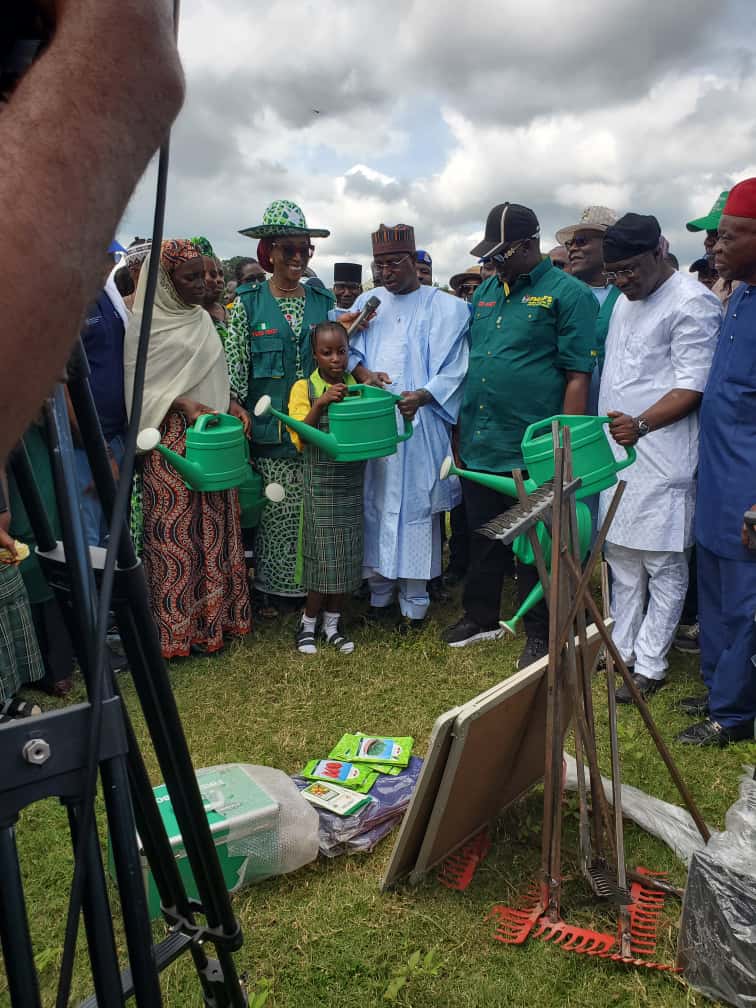
Recalling his days as a member of the Young Farmers’ Club, Maiha encouraged schools to introduce small livestock such as goats, sheep, and poultry.
He announced plans to provide grass seed varieties to promote animal feed production and meat supply — calling livestock “the missing ingredient” in school agriculture.
Also speaking, Honourable Ango Suleiman, Mandate Secretary for Agriculture and Rural Development in the FCT, reaffirmed the administration’s support for youth farming, aligning with President Tinubu’s food security vision.
> “Produce what you eat, eat what you produce,” Suleiman said.
He noted that encouraging children to take up agriculture early would not only strengthen food security but also grow Nigeria’s economy “from the roots.”
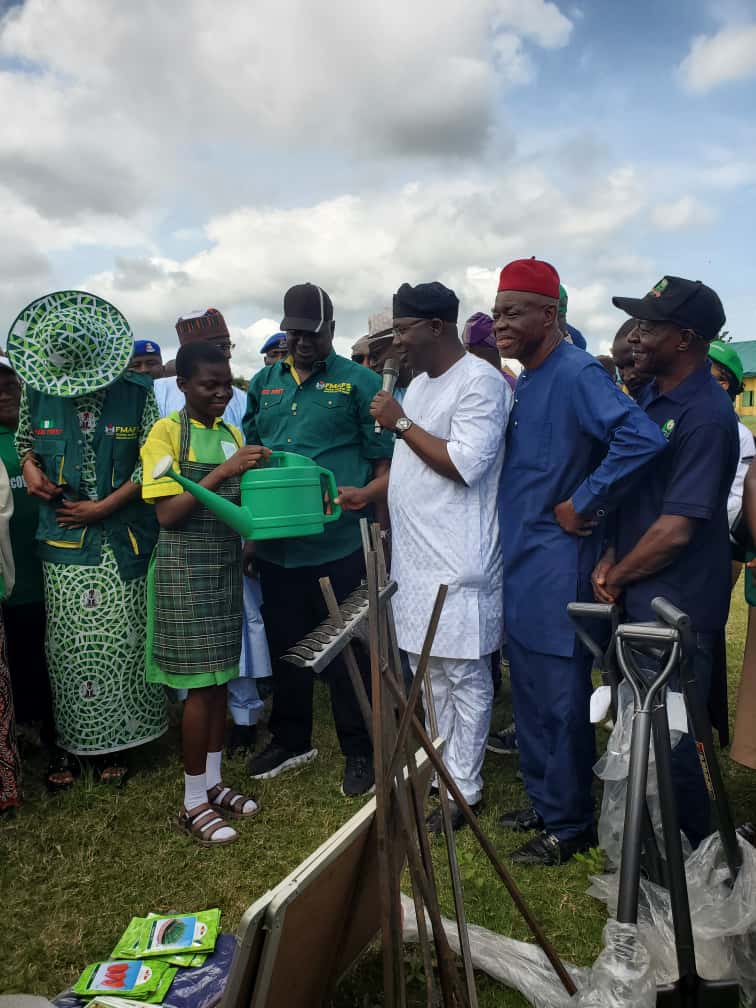
“Farmers Still Face Big Challenges” – Agric Minds CEO
From the private sector, Adadu Israel Otse, Managing Director/CEO of Agric Minds Nigeria Ltd., highlighted persistent challenges confronting farmers, including limited access to finance, storage, and infrastructure.
> “Finance is a major challenge,” he said. “And for perishable crops, lack of storage means massive losses.”
Otse also warned about the worsening impact of climate change and urged the government and private partners to invest more in modern infrastructure, farm inputs, and public awareness.
> “You can have money, but without food, it means nothing,” he added. “Farming is a humanitarian service.”
World Food Day 2025: A Call to Collective Action
This year’s commemoration reinforces Nigeria’s drive to achieve sustainable food systems by combining innovation, policy support, and community action. Stakeholders agreed that addressing climate change, youth unemployment, and agricultural financing remains key to building “a better food and a better future” for all Nigerians
Written by: Democracy Radio
#DemocracyRadio Ministry of Agriculture ministry of livestock development
Similar posts
Copyright Democracy Radio -2024

